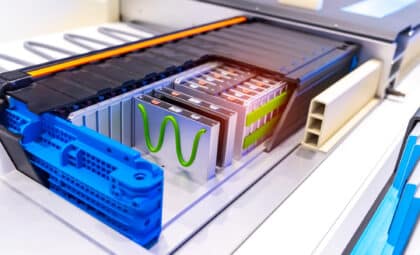Toyota is recalling approximately 591,000 vehicles in the U.S. due to a defect that causes the 12.3-inch digital instrument panel to go blank at startup or while driving. The issue affects both Toyota and Lexus models and could leave drivers without critical information such as speed, warning lights, and malfunction indicators.
This glitch, while not mechanical, raises significant safety concerns. The affected displays are central to vehicle operation, especially in models that have gone fully digital, which makes their sudden failure a risk far beyond mere inconvenience.
Over the past decade, automakers have replaced analog dials with large, digital displays packed with information. Toyota’s decision to voluntarily recall nearly 600,000 vehicles underscores the vulnerabilities of this trend. A blank screen might not stall a vehicle, but it can effectively blind a driver to crucial updates—something the National Highway Traffic Safety Administration (NHTSA) considers a safety hazard.
The recall impacts several of the brand’s top-selling and most profitable models, reinforcing how even high-volume, mainstream vehicles aren’t immune to software-related reliability issues.
A Wide Range of Popular Models Affected
The defect spans a broad swath of Toyota’s current lineup. Affected Toyota models include the Crown, Crown Signia, RAV4, Camry, Grand Highlander, Venza, GR Corolla, Tacoma, Highlander, and 4Runner. Lexus owners are not exempt either—the LS, RX, and TX models are all part of the recall.
According to MotorTrend, the specific issue involves the 12.3-inch digital dashboard going dark on vehicle startup. In some cases, it may also occur while the vehicle is in motion. The problem renders the speedometer, warning indicators, and other critical displays unreadable, which could prevent drivers from noticing a malfunction or maintaining safe speeds. Toyota has not provided a detailed breakdown by model year or trim but has confirmed that the feature became widely available starting with the 2023 model year.
Software Updates or Full Replacements to Follow
Toyota has announced that impacted owners will begin receiving notifications by mid-November 2025. Dealerships will either update the software in the instrument cluster or replace the entire combination meter unit. Both solutions will be carried out at no cost to the customer.
As reported by Autoblog, while Toyota claims drivability is not affected, the recall qualifies as a safety issue under NHTSA regulations due to the potential loss of essential visual information. The fix process could take a few hours depending on the model and whether a full replacement is needed.
Some users on online forums and Reddit, citing dealership sources, note that a permanent fix may not yet be finalized, which could explain delays in scheduling service for affected vehicles.
Digital Failure in a Year of Contrasts
This recall lands in a complex moment for Toyota’s U.S. operations. The company is simultaneously investing heavily in future-facing projects, including a $1.3 billion upgrade to its Georgetown, Kentucky plant to prepare for electric SUV production. At the same time, it is sunsetting the local production of the Lexus ES.
While navigating these transitions, Toyota has also been focused on its enthusiast base. According to Autoblog, the brand recently revealed a high-performance 300-hp GR Yaris and continued work on its heritage initiatives, like producing original engine components for the classic AE86 models. These efforts contrast sharply with the need to address a basic issue affecting digital reliability.









